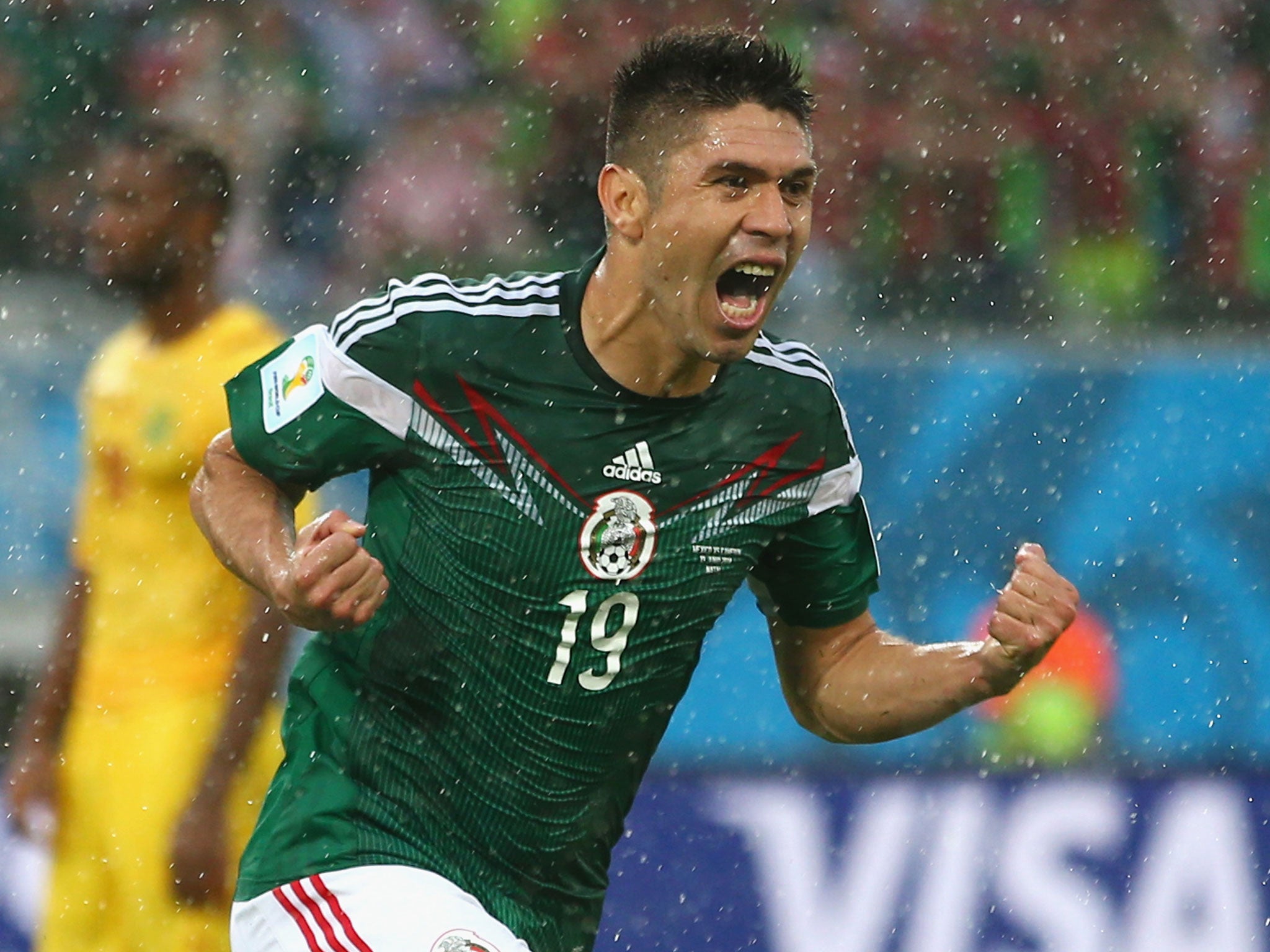Your support helps us to tell the story
From reproductive rights to climate change to Big Tech, The Independent is on the ground when the story is developing. Whether it's investigating the financials of Elon Musk's pro-Trump PAC or producing our latest documentary, 'The A Word', which shines a light on the American women fighting for reproductive rights, we know how important it is to parse out the facts from the messaging.
At such a critical moment in US history, we need reporters on the ground. Your donation allows us to keep sending journalists to speak to both sides of the story.
The Independent is trusted by Americans across the entire political spectrum. And unlike many other quality news outlets, we choose not to lock Americans out of our reporting and analysis with paywalls. We believe quality journalism should be available to everyone, paid for by those who can afford it.
Your support makes all the difference.Both on and off the pitch it was nothing like a World Cup fixture but it did at least produce the right result.
The game contained two dreadful offside calls that might have cost Mexico two points and possibly three. It was played in the kind of driving rain at odds with Natal’s reputation as the home of Brazil’s finest beaches and there were vast banks of empty blue seats. Those who did buy tickets found themselves having to be moved from the Arena das Dunas’ temporary seating after the fire service refused to vouch for its safety.
But for Oribe Peralta’s goal, the safety of the Colombian officials would have been hard to guarantee had they met the Mexico manager, Miguel Herrera, in the stadium corridors. Poorly judged offside calls had cost Giovani dos Santos two legitimate goals which might have turned the game into something of a sporting scandal.
However, on the hour mark, Dos Santos once more broke though a familiarly flimsy Cameroon defence and, though Charles Itandje parried his shot, Peralta was on hand to drive it home.
Neither of these sides arrived in Brazil in especially good shape, although Mexico looked competent and sometimes more than that. Cameroon were weighed down by disputes about money and a distinctly unimpressive qualifying campaign – and played like it.
Mexico had got through four managers reaching this World Cup but Herrera’s decision to employ three centre-halves and two wing-backs was something Cameroon never came to terms with. Even allowing for the offside flags, Mexico ought to have put away several more opportunities, the most glaring of which fell to Javier Hernandez just before the end. His miss from a few yards was evidence of why David Moyes never trusted him at Old Trafford.
The second match of this World Cup featured further evidence that it is likely to be scarred by officialdom. If the Croatia defender, Vedran Corluka’s remark that “Brazil should be given the World Cup now” after Yuichi Nishimura’s contentious award of a penalty in Sao Paulo, hinted at corruption – this was evidence of incompetence.
It was a match that Mexico could and should have had wrapped up by the interval. Instead, Dos Santos had two perfectly good goals disallowed for offside and might have scored two more.
The Mexican press had suggested that the appointment of Colombian referee, Wilmar Roldan, and assistants, Humberto Clavijo and Eduardo Diaz, would give them a slight advantage in Natal, if only in terms of language. By the time Roldan blew for half-time, their confidence was seen to look laughable.
Mexico were convinced they had scored with the match barely 10 minutes old as Dos Santos volleyed home Hector Herrera’s cross. The flag went up, although it appeared the forward, preferred once more to Manchester United’s Javier Hernandez, had timed his run perfectly. On the half-hour mark, Dos Santos’s glancing header beat Itandje for a second time and once more it was disallowed. The former Tottenham forward’s hands flew to his head and pummelled the rain-swept air.
His manager, Herrera, stood on the touchline, his hair matted by the downpour, hands on hips looking bemused by it all. The official reason was that it was offside, a verdict nobody in the Arena das Dunas with access to a TV replay would have believed.
The Indomitable Lions of Cameroon looked like a bewildered tabby who had wandered on to a dual-carriageway.
They had arrived late in Brazil following a familiar dispute about win bonuses, although given they had won only one World Cup game since reaching the quarter-finals in 1990, the figures looked purely notional. On the evidence of a wild first half, the Cameroon Football Federation will not be paying out any time soon.
Eto’o had distributed a letter to reporters at the Estadio das Dunas replying to allegations that by organising the strike, he was guilty of “treason” as one newspaper had claimed. Eto’o said that the dispute had been: “for improvements that will benefit future generations”. The Chelsea striker added: “There have been misunderstandings, certainly, however, we are satisfied with a happy end.” They and the Cameroon public cannot have been happy with what they produced here.
And yet as the flags were raised and as Hector Moreno and Rafael Marquez, playing in his fourth successive World Cup, made a hash of meeting Andres Guardardo’s free-kick, the feeling grew that Mexico might be made to pay.
In between the two dreadful decisions, Samuel Eto’o put the ball in the Mexican net but this time the flag was raised correctly.
And yet until Peralta scored, the danger was always that Cameroon would snatch something and hold it. Benoît Assou-Ekotto’s free-kick struck the Mexican wall, and deflected wickedly. Had the angle been fractionally different, Dos Santos’s disallowed goals might have been seen as one of the great injustices.

Join our commenting forum
Join thought-provoking conversations, follow other Independent readers and see their replies
Comments